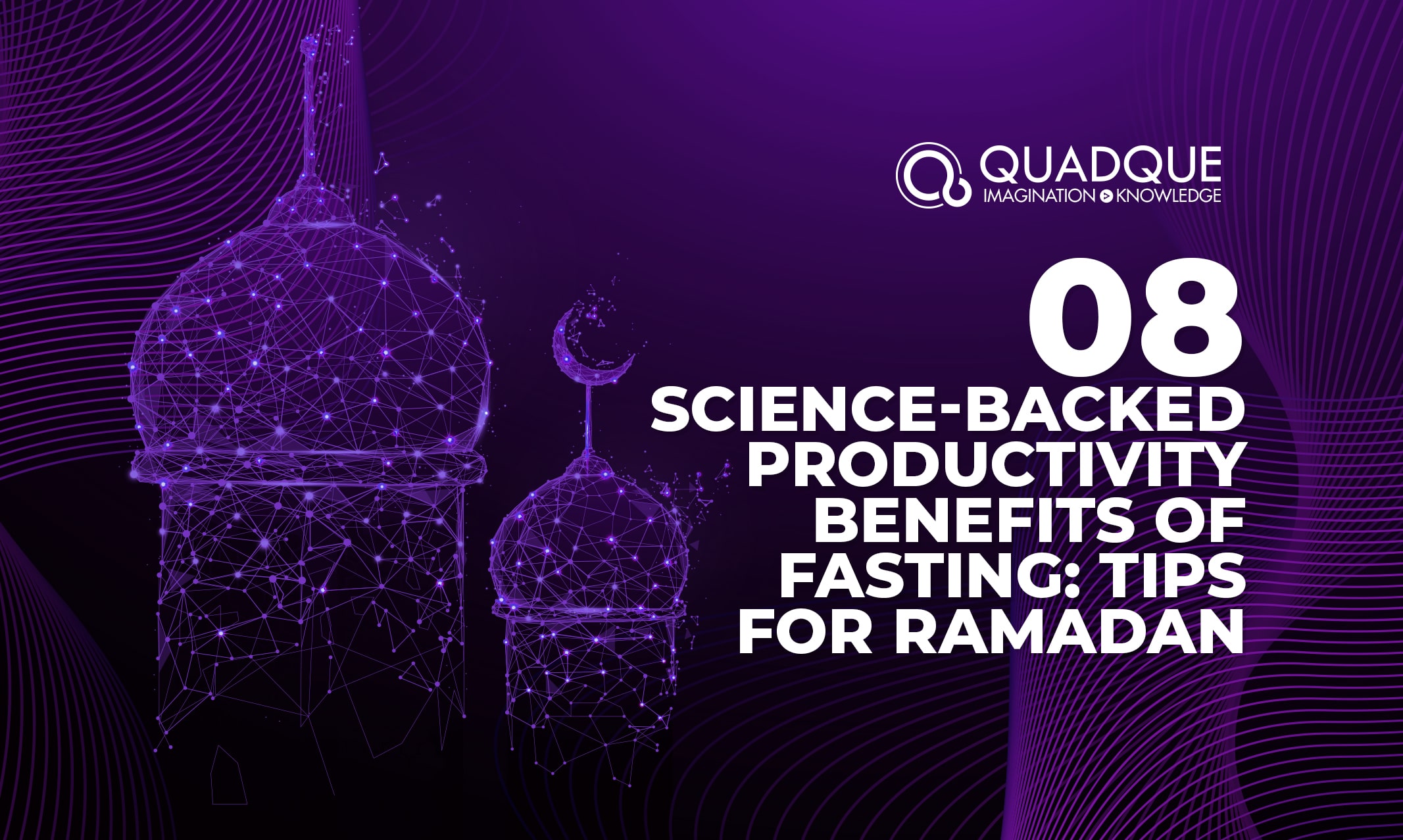
10 scientific benefits of ramadan fasting in islam
Fasting has been practiced for centuries across the world by various cultures, religions and traditions. There are various reasons why fasting has become so widespread, including religious, historical and health factors.
Did you know that fasting is rapidly becoming popular in the modern world as a tool to increase productivity?
In fact, scientific research has proven the positive correlation between fasting and productivity. Today, we’ll discuss eight of these benefits in this article. We’ll also list some useful tips for the holy month of Ramadan. So let’s take a look at how fasting can have a positive impact on your overall performance at the workplace.
8 Science-Backed Productivity Benefits of Fasting
A wide range of clinical studies and research has shown the tremendous benefits of fasting for improving productivity. Concepts such as intermittent fasting have been adopted by experts and fitness professionals to improve the body and mind. The majority of professionals think that fasting has both a short-term and long-term impact on the body by improving a few of our bodily functions. Several studies, both old and new, have confirmed this. So let’s take a quick look at some of the main benefits of fasting.
1. Increases Mental Clarity
Mental clarity is a crucial necessity, especially when you have to focus on difficult tasks. Fortunately, fasting can increase the production of the hormone norepinephrine. This hormone has been found in studies to improve cognitive abilities and increase alertness during work.
2. Boosts Energy Levels
Did you know that the process of digestion requires energy to occur? However, you can divert this energy to other physical or mental tasks. This happens because you’re not eating anything during the fast. Also, the increased growth hormone levels further increase your energy.
3. Improves Sleep Quality
Sleep quality can drastically improve during a fasting period. Fasting balances the circadian rhythm, which is a crucial component of sleep. A better night’s sleep means that your body recovers faster, and you feel more rested. So you’re better prepared to work another day.
4. Promotes Weight Loss
Fasting methods, such as intermittent fasting, are extremely popular ways to lose weight. We all know that excess weight can hamper your hormone production process and make you feel more tired. So well-regulated fasting can certainly help you lose that extra weight and feel a lot better.
5. Stronger Self-Discipline
Fasting can help you develop a very disciplined mindset through the conscious effort to not eat food or drink water. You can apply this discipline in all areas of your life, including your work and personal lives.
6. Better Time Management Skills
So you have to consciously make the effort to be efficient with your time and meal preparation as you have fixed hours to eat food while fasting. Just like the previous point, fasting can be a great way to develop effective time management skills for your life.
7. Reduces Stress Levels
The stress hormone cortisol is one of the primary drivers of increased stress levels. Studies have found that fasting can decrease this hormone. Therefore, fasting is a very good way to reduce stress in the body and be more focused in the workplace.
8. Additional Health Benefits
Fasting has several health benefits. It can reduce inflammation, improve insulin sensitivity and lower your blood pressure. Addressing these issues naturally through fasting can greatly improve your mood and physical health.
Tips for Staying Productive During Ramadan
Muslims from all corners of the world fast from sunrise to sunset for 30 days during the holy month of Ramadan. It can be a challenging task for some. So let us give you some tips for making the most of these 30 days and staying productive during the period. Let’s take a look!
Plan your schedule: Identify the times when you feel weak or tired during the fast and make a plan for your work accordingly.
Take breaks: Another trick is to take more short breaks than usual. These breaks can help you recharge your battery quickly.
Stay hydrated: It’s very important to avoid dehydration later in the day by drinking an adequate amount of water during the non-fasting hours.
Prioritize tasks: Your priority list can be changed during Ramadan. You can shift some of your tasks to the non-fasting hours.
Take a nap: Sometimes, you can take a short nap of around 30 minutes during the fast to avoid fatigue.
Avoid overeating: Many people tend to overeat during Ramadan. This results in an increase in your body weight instead of a decrease. Try to avoid it.
Avoid excess caffeine: Remember that excess stimulants like caffeine can disrupt your sleep cycle and increase dehydration.
Practice meditation: Prayer and meditation can help you reduce stress levels and work better during the fasting hours.
Conclusion
It’s quite clear that fasting has numerous productivity benefits. Hundreds of scientific studies have confirmed these benefits. So you can certainly use fasting to improve your mental and physical health and your overall productivity. Besides, you can also try implementing our handy tips to further improve your workplace productivity. Fasting does not have to be a great challenge. With the right approach, you can easily use this practice to your advantage. Do not forget to keep an eye on our social media pages for daily updates on Sehri and Iftar timings.
Recent Posts
- Sustainable Graphic Design for 2024 and Beyond
- Profit Power: Maximizing Revenue Growth with CRM Software
- Medical and Elderly Care in the UK: Strategies for Sustainable Growth
- Securing Educational Excellence: IT Support for the Digital Era
- Tech Transformation: The Untold Story of Bangladesh’s Innovation Hub
Recent Comments
Latest Post
Categories
- AI
- Biometric
- Blockchain
- Cloud Computing
- CRM
- custom software
- Cybersecurity
- Data Analysis
- Datacenter Management
- Designer
- Digital Marketing
- Education
- health care
- Informative
- ISP Management
- IT Procurement
- IT Recruitment
- IT Support
- Mobile App
- Network Management
- Robotics Landscape
- SAP ERP
- SEO
- Structured Cabling
- Tech Australia
- Tech bangladesh
- Technology
- tourism
- Uncategorized
- Web Development


